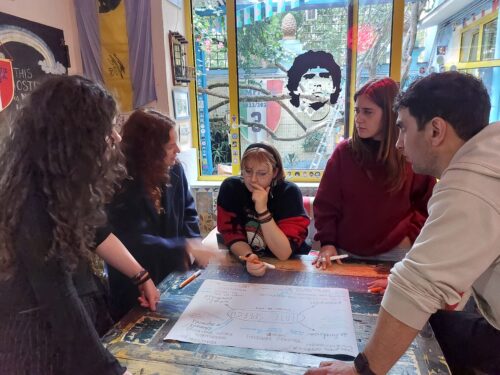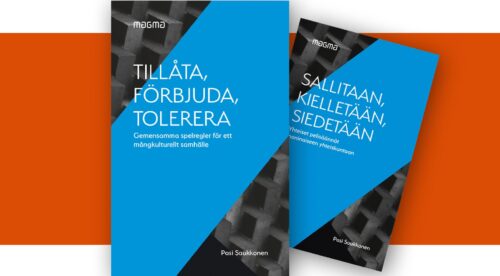On December 9, 2019 The European Russian Forum was held in Brussels organized by Latvian MEP Tatyana Zhdanoka. Oksana Chelysheva spoke there about complications of the conflict in Ukraine on the Russian diasporas in Europe. The Forum was entitled, “Russian Identity Outside Russia”, and among the topics were “The future of Russians in the Baltic states: individual assimilation or collective integration?”, “The models of treatment of Russians in the EU member states: ‘agents’, ‘sacrifices’, ‘invisibles’, or ‘part of the society’”.
Speaking about the future of people of Russian background in Europe, we can’t fail to pay attention to the armed conflict in the eastern part of Ukraine. It leads to growing radicalization on both sides and absolutely belligerent anti-Russian rhetoric, not only in Ukraine but also in many countries where the authorities use this crisis to justify discriminatory practices towards Russians and Russian-speaking people living there, no matter if the Russian faction of their societies is “old” or “new”.
Unfortunately, simply stating that Ukraine has been historically multi-ethnic and multi-lingual is regarded now as politically sensitive. The Finnish Peace Committee has been trying for almost a year to launch a book project on Ukraine which would be similar to the book on the richness of Finland with her national and language minorities. However, it still requires a definite political decision from inside Europe to admit the historic fact that Ukrainian Greeks, Poles, Hungarians, Bulgarians, Roma, etc do exist and many of them use either Russian or Ukrainian as a common language while many use only Russian in inter-communal communication.
“Historically, the ideal of a nation-state has often been realized by force. Minorities have been forced to assimilate, people have been transferred from one state to another, and entire ethnic groups have been murdered. However, even the most violent coercive measures have not succeeded in building nationally, culturally or linguistically homogeneous states.”
This is a statement from the book “National Minorities in Finland. A Richness of Cultures and Languages”, a part of the celebration of the 100th anniversary of independent Finland. It evidences that there is understanding in Europe that the outdated notion of “one nation – one state” does not necessarily help to have a safe and secure environment for the people or rather peoples living there.
This book was published with the support of the Finnish Ministry for Foreign Affairs with the participation of two NGOs, Minority Rights Group International, Finland and the Finnish Peace Committee. The attempts to depict all of Europe as developing sentiments which are negative towards national and language minorities are as counter-productive as politics aimed at assimilating entire representative groups who have total grounds to be recognized as “traditional” in fulfilling the criterion of their one-hundred-year existence in the territory of a state. In Finland Swedish-speaking Finns, Sami, Roma, Jews and Tatars fulfill this criterion while so-called “old Russians” have been assimilated almost in full.
At that, the number of Russians living in Finland is steadily growing, also due to the number of people coming to Finland to seek protection. It refers not only to people from Russia but also from Ukraine.
I myself belong to the Russian-speaking minority in Finland. When Russia refused to issue a new passport for me, Finns offered an option to have a non-citizen passport of Finland. Unlike the reality of non-citizens of Latvia where, by the way, the book on national minorities in Finland was printed in 2018, I got the status of a non-citizen to help me resolve my problems. When I have to turn to a doctor in Finland, they offer to try to find a Russia-speaking nurse or doctor. Almost all important information provided by state services is available in Russian, too. No doubt that problems or misunderstandings are quite likely, also due to the atmosphere of mistrust which mainstream media contribute to. Fortunately, in Finland most issues of this kind can be resolved through the office of the Ombudsman against discrimination which, in my experience, is really efficient.
During this debate in Brussels, a lot has been said about unacceptability of applying double standards towards human rights practices. It refers to all the sides involved into the conflict, no matter directly or indirectly. In this respect, I would like to express my appreciation to a few decisions made in Finland, Germany, France and Spain to grant political protection to Ukrainian citizens who have views dissenting from the ruling nationalistic political agenda.
In this regard and using the chance to directly address some representatives of Russia present here, I call on the authorities of Russia to be more consistent with their own claims of support towards Ukrainians who are subjected to suffering war or experience threats due to their disagreement with current politics and war as such. In 2018 Russia deported Marina Menshikova to Ukraine, where she was immediately arrested and soon found dead in a cell of the investigatory prison of Dnipr. In 2019 Russia deported 60-year-old Elena Boiko to Ukraine. The woman had been warning the authorities of her inevitable imprisonment in Ukraine. Instead she was deprived of any chance to escape transfer to Ukraine and was arrested in the neutral zone between Russian and Ukrainian border checkpoints, and is currently being kept in the SBU prison in Lviv. I personally would never approve of her participation in a propagandist show broadcast by Russian TV which only instigates new rounds of the conflict. But as of now, according to the documents provided by Elena’s daughter, the woman’s health is worsening and Russia is responsible for the life of a person who entrusted her life to the will of Russian officials. Criminal persecution in Ukraine lacking evidence of any crime committed by Elena, who could be expected to have dissenting views is one thing, and the role of Russia which facilitated this persecution is another.
Right now in Saint Petersburg another woman is awaiting deportation to Ukraine. Irina Vorontsova, a citizen of Ukraine, who is married to a Russian citizen, can be deported despite the high likelihood of sharing the fate of Menshikova and Boiko because Irina had been openly involved into assembling humanitarian aid to people affected by the war in Donbass. Russia ought to treat responsibly those whom her authorities claim to support in their political statements. While it is not possible to get Marina Menshikova back to life or reverse the decision on Elena Boiko, it is still in your hands to secure life of Irina Vorontsova.







